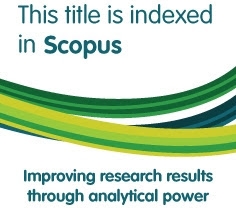Taqlīd Ngunya li muslimī Pegayaman bi Bali: Taṭbīq al-sharī‘ah al-Islāmīyah fī baldat al-Hindūs
Abstract
The 19th-century orientalists assumed that Balinese religious identity was formed through opposition to Islam. But this article provides contrary evidence. In Bali, Islam is exposed through associative patterns of interaction with Hindu-Balinese society since the 17th century. The Ngunya Muslim Pegayaman tradition is one of the results of the interaction between Islamic culture and Hindu culture in Bali. This article attempts to analyze the tradition according to three perspectives. In a continuity perspective, this tradition is one form of cultural acculturation and at the same time, explains how the Hindu community well receives the Islamic community. In a convergence perspective, Ngunya is a creative idea in resolving social conflicts related to marital procedures. In a concentric view, although the tradition was adopted from the Hindu tradition, Pegayaman’s Islamic community still made Islamic teachings the main reference in the procedure of marriage.
Keywords
Full Text:
PDFReferences
Abadi, Moh Mashur. 2012. “Pesantren Desa Pegayaman, Meleburnya Jagat Bali Dalam Kearifan Islam.” Karsa: Journal of Social and Islamic Culture 20(1): 152–64.
al-Shan’ani, Imam Muhammad bin Ismail. Subulus Salam Syarah Bulughul Maram. Jakarta: Darus-Sunnah.
Arif, Muhamad. 2016. “Analisis Faktor Integrasi Sosio-Kultural-Historis Pada Masyarakat Multikultural (Studi Kasus Pada Masyarakat Desa Pegayaman Bali).” Sosio Didaktika: Social Science Education Journal 3(2).
Berg, C. C. 1955. “The Islamisation of Java.” Studia Islamica (4): 111.
Bergiel, Erich B., John W. Upson, and Blaise J. Bergiel. 2011. “Revisiting Hofstede’s Dimensions: Examining the Cultural Convergence of the United States and Japan.” American Journal of Management 12(1).
Budiwanti, Erni. 1995. The Crescent Behind the Thousand Holy Temple: An Ethnographic Sytudi of the Minority Muslims of Pehayaman North Bali. Yogyakarta: Gadjah Mada University Press.
Chandler, M.J., and C.E. Lalonde. 2008. Cultural Continuity as a Protective Factor against Suicide in First Nations Youth. Horizons --A Special Issue on Aboriginal Youth, Hope or Heartbreak: Aboriginal Youth and Canada’s Future. Canada: The Columbia University of Victoria.
“Dari Desa Nyoman Ali Akbar.” 1986. Majalah Tempo 17.
Dewantara, Ki Hadjar. 2011. 4 Karya Ki Hadjar Dewantara Bagian Pertama (Pendidikan). Yogyakarta: Majelis Luhur Persatuan Taman Siswa.
Hauser-Schäublin, Brigitta. 2004. “‘Bali Aga’ and Islam: Ethnicity, Ritual Practice, and ‘Old-Balinese’ as an Anthropological Construct.” Indonesia (77): 27–55.
Hawkins, Keller. 2012. “Harmony or Mere Toleration? Examining Inter-Religious Relations in Amertasari.” Independent Study Project (ISP) Collection (1441).
Koentjaraningrat. 2002. Pengantar Ilmu Antropologi. Jakarta: PT Rineka Cipta.
Mahfud, Choirul. 2006. Pendidikan Multikultur. Yogyakarta: Pustaka Pelajar.
Pageh, I Made. 2013. Model Integrasi Masyarakat Multietnik Nyama Bali – Nyama Selam (Belajar Dari Enclaves Muslim Di Bali). Denpasar: Pustaka Larasan.
Shils, Edward. 1971. Tradition, Source: Comparative Studies in Society and History. Cambridge: Cambridge University Press.
Simpen AB, Wayan. 1989. Babad Kerajaan Buleleng (Alih Bahasa). Denpasar: Penerbit Cempaka.
Smith, Kenny. 2001. “The Importance of Rapid Cultural Convergence in the Evolution of Learned Symbolic Communication.” In Advances in Artificial Life, Lecture Notes in Computer Science, eds. Jozef Kelemen and Petr Sosík. Ediburgh: Springer Berlin Heidelberg, 637–40.
Suwindia, I Gede. 2012. “Relasi Islam Dan Hindu Perspektif Masyarakat Bali Studi Kasus Tiga Daerah: Denpasar; Karangasem, Dan Buleleng.” Forum Ilmu Sosial 39(1).
Tim BPD Desa Pegayaman. 2005. Buku Adat-Istiadat Desa Pegayaman. Bali: BPD Desa Pegayaman.
Vickers, Adrian. 1987. “Hinduism and Islam in Indonesia: Bali and the Pasisir World.” Indonesia (44): 31–58.
Warka, Made, Noviyanti, and Nyoman Ratih. 2010. “Aspek Hukum Perkawinan Kawin Lari Di Singaraja Bali.” Jurnal Ilmu Hukum Mimbar Keadilan.
DOI: https://doi.org/10.15408/sdi.v26i2.7763
Refbacks
- There are currently no refbacks.

All publication by Studia Islamika are licensed under a Creative Commons Attribution-NonCommercial 4.0 International License.
Studia Islamika, ISSN: 0215-0492, e-ISSN: 2355-6145
View My Stats
